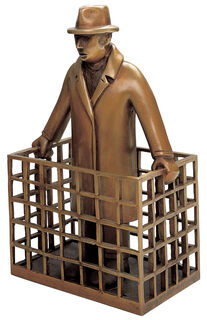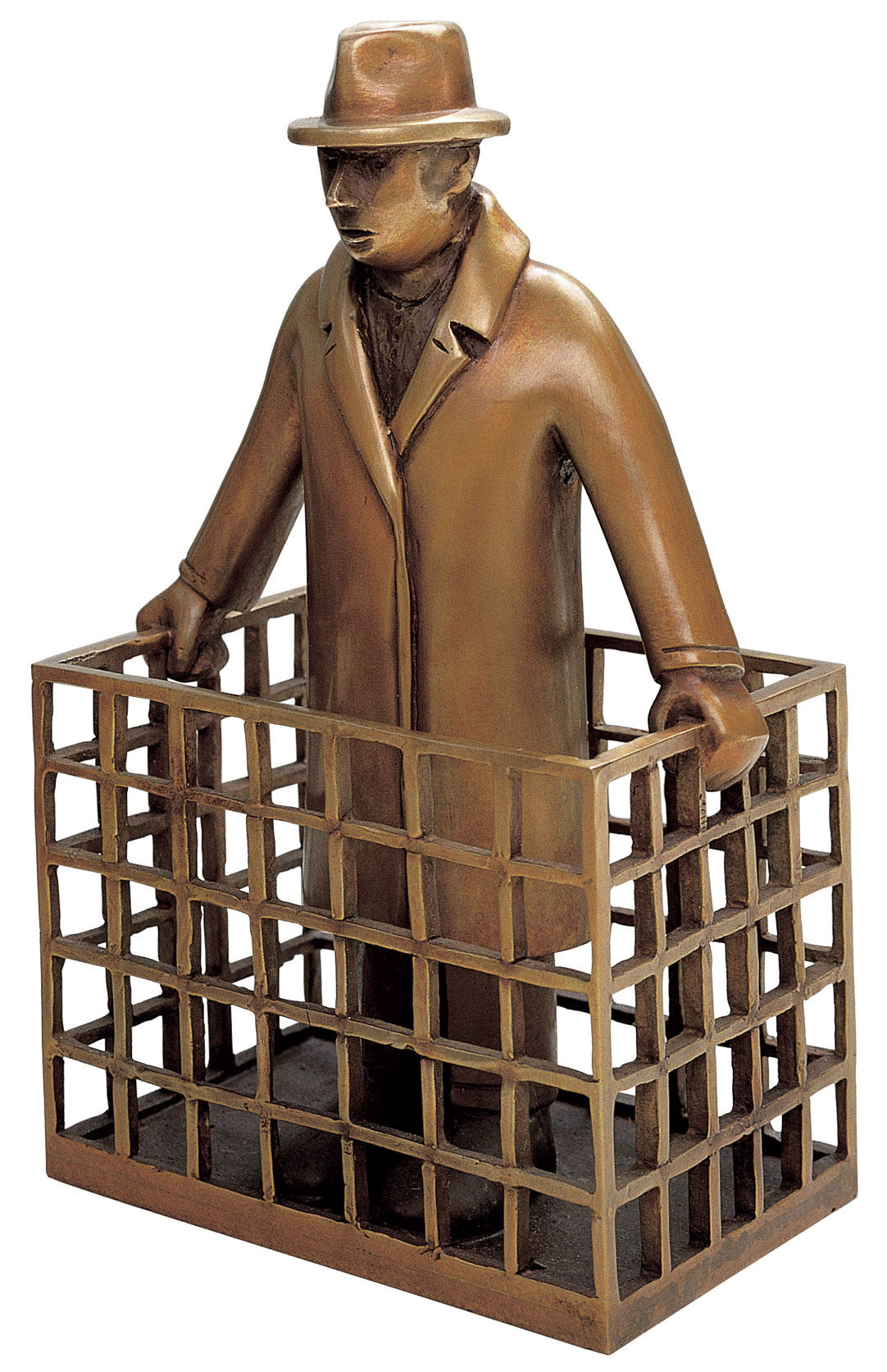Sculpture "Plot", bronze
Sculpture "Plot", bronze
Quick info
limited, 199 copies | numbered | signed | bronze | size 15 x 10.7 x 25.5 cm
Detailed description
Sculpture "Plot", bronze
A man is standing on a small fenced plot. At first glance he seems to be enclosed, but the fence is not high, he could easily jump over... Perhaps his outstretched arms even express pride of ownership - according to the phrase "My home is my castle"?
Signed and numbered. Limited world edition 498 copies. Format 15 x 10,7 x 25,5 cm. Edition in fine bronze, cast by hand in the Lost-Wax-Process. Limited edition 199 copies.
About Siegfried Neuenhausen
The sculptor, painter and graphic artist Siegfried Neuenhausen (born in 1931) studied philosophy and painting. In addition to his exhibitions, he was a visiting professor in the USA and Indonesia, among other places. He has been involved in social projects since the 1970s. Neuenhausen has been awarded the 1st class of the Order of Merit of the Federal Republic of Germany.
Siegfried Neuenhausen articulates his very own form of social criticism in his sculptures – but never in a super-teacherly manner but rather with a subtle irony. He leaves the viewer room for interpretation and projection.
The small-format sculptures can participate in the life of their owner. They fit into any niche and are silent objects of contemplation, of the haptic and conversation. It is a feature of Neuenhausen's "miniature stills" that they are not one-dimensional. They do not impose a "view of things" on the viewer but rather remain open to their own interpretations and projections. This raises the question of who is protected by the boundaries that surround his sculptures – the environment from man or man from the environment.
The artist creates situations with humour, which he has gained through exact observation of people and their behaviour in everyday life. His classical "man" always wears a coat and hat.
An alloy of copper with other metals (especially with tin) used since ancient times.
When casting bronze, the artist usually applies the lost-wax technique which is dating back more than 5000 years. It's the best, but also the most complex method of producing sculptures.
First, the artist forms a model of his sculpture. It is embedded in a liquid silicone rubber mass. Once the material has solidified, the model is cut out. The liquid wax is poured into the negative mould. After cooling down, the wax cast is removed from the mould, provided with sprues and dipped into ceramic mass. The ceramic mass is hardened in a kiln, whereby the wax flows out (lost mould).
Now we finally have the negative form, into which the 1400° C hot molten bronze is poured. After the bronze had cooled down, the ceramic shell is broken off and the sculpture is revealed.
Now the sprues are removed, the surfaces are polished, patinated and numbered by the artist himself or, to his specifications, by a specialist. Thus, each casting becomes an original work.
For lower-quality bronze castings, the sand casting method is often used which, however, does not achieve the results of a more complex lost-wax technique in terms of surface characteristics and quality.
Term for an art object (sculpture, installation), which is produced in multiple copies in a limited and numbered edition according to the artist‘s will.
Artist's multiples have been called the most accessible and affordable art on the market.
A plastic work of sculptural art made of wood, stone, ivory, bronze or other metals.
While sculptures from wood, ivory or stone are made directly from the block of material, in bronze casting a working model is prepared at first. Usually, it is made of clay or other easily mouldable materials.
The prime time of sculpture after the Greek and Roman antiquity was the Renaissance. Impressionism gave a new impulse to the sculptural arts. Contemporary artists such as Jorg Immendorf, Andora, and Markus Lupertz also enriched sculptures with outstanding works.


